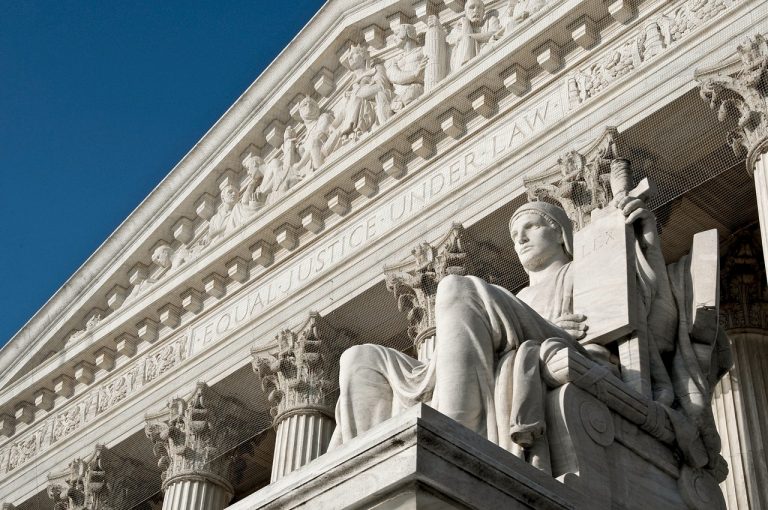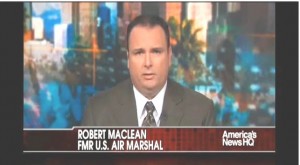The Supreme Court held in DHS v. MacLean that the a federal agency’s secrecy regulations do not override the protections of the Whistleblower Protection Act. In particular, the Court held that TSA Air Marshall Robert MacLean engaged in protected whistleblowing when he disclosed that TSA planned to cancel overnight missions just as the Department of Homeland Security issued a confidential advisory about an al Qaeda hijacking plot.
MacLean contended that his disclosure concerned a threat to public safety and was therefore protected under the Whistleblower Protection Act. And indeed within 24 hours of MacLean’s public disclosure about TSA’s plan to cancel overnight missions, TSA reversed its decision and put air marshals back on flights. Approximately three years after MacLean’s disclosure, TSA terminated his employment for disclosing alleged sensitive security information.
The Whistleblower Protection Act protects an employee who discloses information revealing “any violation of any law, rule, or regulation,” or “a substantial and specific danger to public health or safety.” There is a narrow exception, however, for disclosures that are “specifically prohibited by law.” Affirming a Federal Circuit decision in MacLean v. DHS, the Supreme Court held today that this exception encompasses statutes and not rules or regulations. Applying basic canons of statutory construction, the Court found that Congress made a deliberate choice to say “specifically prohibited by law” rather than “specifically prohibited by law, rule, or regulation,” thereby excluding rules and regulations from the narrow exception to WPA protected conduct.
The Court’s decision as driven in part by the important public policy of preventing agencies from using regulations to override the protections afforded whistleblowers under the Whistleblower Protection Act:
In addition, a broad interpretation of the word “law” could defeat the purpose of the whistleblower statute. If “law” included agency rules and regulations, then an agency could insulate itself from the scope of Section 2302(b)(8)(A) merely by promulgating a regulation that “specifically prohibited” whistleblowing. But Congress passed the whistleblower statute precisely because it did not trust agencies to regulate whistleblowers within their ranks. Thus, it is unlikely that Congress meant to include rules and regulations within the word “law.”
MacLean is a terrific decision for whistleblowers. Kudos to Robert MacLean for his tenacity and courage in pursuing his claim for approximately eight years. Hopefully he will soon be restored to his position as an air marshal.
Experienced Whistleblower Protection Act Attorneys
Zuckerman Law has represented whistleblowers before the Office of Special Counsel, Offices of Inspectors General, and Congressional oversight committees. The firm is uniquely qualified to represent whistleblowers in the federal government because two of the firm’s attorneys served in senior roles at the U.S. Office of Special Counsel.
- Eric Bachman served as Deputy Special Counsel, Litigation and Legal Affairs, OSC, where he spearheaded an initiative to combat whistleblower retaliation at the Department of Veterans Affairs. During Bachman’s tenure at OSC, the number of favorable actions for whistleblowers increased by over 50% agency-wide.
- Jason Zuckerman served as Senior Legal Advisor to the Special Counsel at OSC, where he worked on implementation of the Whistleblower Protection Enhancement Act and several high-profile investigations.
The firm has represented whistleblowers testifying before the House Financial Services Committee and vigorously opposed efforts to silence whistleblowers. The whistleblower protection lawyers at Zuckerman Law have also helped federal employees combat unlawful gag provisions in agency policies or agreements. To learn more about the WPA, read our outline published by Practical Law: Whistleblower Protections Under the Whistleblower Protection Act.
If you are seeking representation in a whistleblower protection case, click here, or call us at 202-262-8959 to schedule a free preliminary consultation.
Frequently Asked Questions About the Whistleblower Protection Act
What disclosures are protected under the Whistleblower Protection Act?
Are disclosures to an Inspector General protected under the Whistleblower Protection Act?
How does a whistleblower prove knowledge of protected whistleblowing?
What is the causation standard in a Whistleblower Protection Act case?
What is a personnel action under the Whistleblower Protection Act?
How can a federal employee whistleblower seek relief for whistleblower retaliation?
Additional Resources About Whistleblower Protection Act
- Congress Strengthens Whistleblower Protections for Federal Employees
- How to foster a more ethical culture
- Whistleblower Lawyer Jason Zuckerman Quoted About MacLean Whistleblower Protection Act Case
- Trump Questionnaire Raises Concerns About Retaliation Against Energy Department Staff
- Whistleblower Lawyer Jason Zuckerman Quoted in National Law Journal
- Whistleblower Lawyer Jason Zuckerman Quoted About Federal Employee Whistleblower Rights
- Washington Post Quotes Whistleblower Attorney Jason Zuckerman About Chilling Effect of Insider Threat Program
- CFPB official wants to silence a whistleblower before he can talk to Congress









